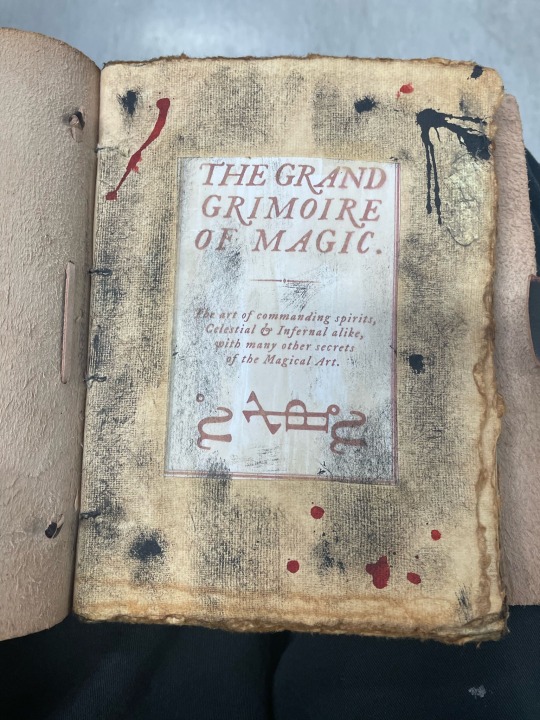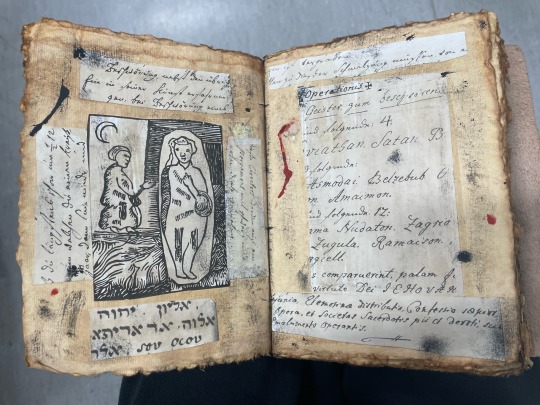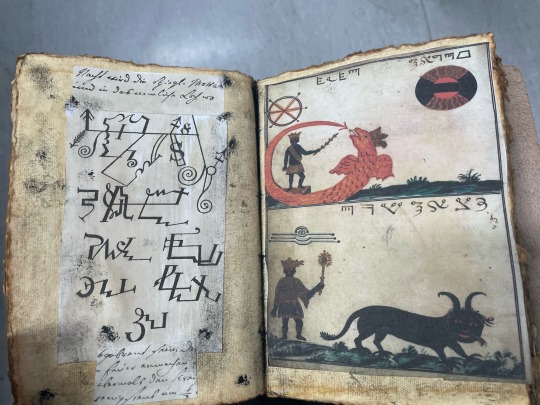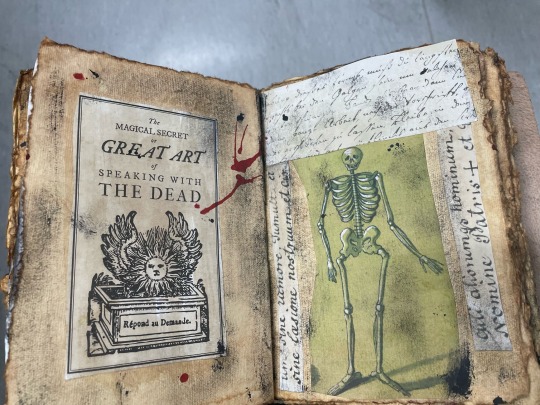#shakespeare's sisters
Text
Woolf concluded that any glimmer of female creativity in Shakespeare’s time would have been expunged by a pinched life as a breeding machine of children who so often died, disallowed opinions of her own. Had any woman survived these conditions, wrote Woolf, “whatever she had written would have been twisted and deformed, issued from a strained and morbid imagination.”
Wrong, says the Renaissance scholar Ramie Targoff in “Shakespeare’s Sisters,” her fascinating excavation of four intellectual powerhouse women of the 16th and early 17th centuries. Woolf had just not dug deep enough to find Mary Sidney’s sublime translations, Aemilia Lanyer’s groundbreaking poems or Elizabeth Cary’s subversive dramas. She dismissed the fourth, the great diarist Anne Clifford, as “trivial,” says Targoff — a view not shared by Anne’s distant relative Vita Sackville-West when she discovered and lovingly edited the diaries in 1923.
---
When he left for two years to fight in Protestant wars in the Netherlands, his mother hired someone to write letters to him in Elizabeth’s name in case her husband found her obvious intelligence repellent.
#shakespeare#william shakespeare#women#writers#women writers#shakespeare's sisters#ramie targoff#mary sidney#aemilia lanyer#elizabeth cary#anne clifford#history#elizabeth i
17 notes
·
View notes
Text
In Shakespeare’s Sisters, Ramie Targoff recovers to literary memory the lives and talents of four women who wrote in England during Shakespeare’s time, well before there was any notion of “a room of one’s own.” From Mary Sidney, sister of the well-known poet Sir Philip Sidney (she wrote most of the beautiful translations of the Psalms ascribed to him) to Anne Clifford, a diarist and memoirist who fought for decades against a patriarchy that tried to disinherit her from her family’s land, these women stun us by their bravery. In the passage below, Targoff discusses the important poetry of Aemilia Lanyer, born of an illiterate mother and an immigrant father; it appeared in print in 1611, making her the first woman in the 17th century to publish an original book of verse.
. . .
In the same year the King James Bible first appeared in print, establishing the most influential English translation of scripture ever produced, Aemilia dared to tell a different story. Over the course of 230 rhyming stanzas of eight lines each, her “Salve Deus Rex Judaeorum” lays out the story of Christ’s Passion from a distinctly female perspective. The formal challenge of writing the poem was itself daunting: it’s no easy feat to compose over 1,800 lines of ottava rima (iambic pentameter stanzas written in an abababcc rhyme scheme). But Aemilia’s greater audacity was in tackling the subject of Christ’s crucifixion. To justify this, she makes the same claim for divine inspiration that the great Protestant poet John Milton would make sixty or so years later in writing Paradise Lost. Describing her own “poor barren brain” as “far too weak” for the task, she asks God to “give me power and strength to write”:
Yet if he please to illuminate my spirit,
And give me wisdom from his holy hill,
That I may write part of his glorious merit,
If he vouchsafe to guide my hand and quill
Then will I tell of that sad blackfaced night,
Whose mourning Mantle covered Heavenly Light.
Given the fact that the poem proceeds to do exactly what she petitions for, Aemilia shows her reader that her prayer has been answered: she’s not so much writing as channeling the divine word.[...]
Aemilia’s narrative of Christ’s Passion begins on the “very night our Savior was betrayed.” As part of her overall strategy in “Salve Deus”of celebrating female virtue, the poem draws attention both to the wicked acts of men (Caiaphas, Judas) and to the compassionate acts of women (the daughters of Jerusalem, the Virgin Mary) in the days leading up to Christ’s arrest. None of this comes as a surprise. But when Aemilia arrives at the moment that Pontius Pilate considers Christ’s fate, she does something totally unanticipated. Relinquishing her own role as narrator, she hands the poem over to Pilate’s wife. Among the most minor figures in the New Testament, Pilate’s wife has a single line of verse in only one of the four gospels. In Matthew 27:19, a woman who is never named urges her husband, the Roman governor in Judaea, to disregard the will of the people calling for Christ to be crucified: “Have nothing to do with that just man,” she warns Pilate, “for I have suffered many things this day in a dream because of him.”
In early Christian commentaries and apocryphal writings, this woman was often called Procula Claudia, or simply Procula. In medieval England, Procula was paraded onstage in the mystery plays as an evil woman who almost prevented Christ’s saving humankind; in the York Cycle’s play named for her—The Dream of Pilate’s Wife—Percula, as she’s called there, receives her dream from the Devil himself. There’s no way to know if Aemilia knew this or other medieval dramas; it’s more likely she would have noticed the more positive treatment Pilate’s wife was given in the Geneva Bible, the popular translation done by English Protestants in the 1550s. Consistent with the Protestant belief that everyone should have access to the Bible directly, the translation was heavily glossed with marginal notes. Next to the verse from Matthew regarding Pilate’s wife was a single gloss suggesting that Pilate should have taken the “counsel of others to defend Christ’s innocence.” But whether the treatment of this woman was negative or positive, she had never been asked to perform the role Aemilia gave her in “Salve Deus,” where she delivers one of the strongest defenses for women’s rights that Christianity had ever seen.
In Pilate’s wife, Aemilia found her perfect heroine: a woman whose intervention at the crucial moment could have changed the course of history, if only her husband had listened. With the scriptural verse from Matthew before her, Aemilia made two crucial additions to the story. First, she transformed Pilate’s wife into a faithful believer who already regarded Christ as her Lord. “Hear the words of thy most worthy wife,” she begs her husband, “who sends to thee, to beg her Savior’s life.” Far from simply reporting that she’s had an ominous dream, as she does in Matthew, Pilate’s wife explicitly warns Pilate that he will be killing the son of God.
Second, Aemilia turned Pilate’s wife into a proto-feminist. After urging Pilate to let Christ go on religious grounds, she comes up with a new reason for why he should be pardoned: “Let not us women glory in men’s fall / Who had power given to over-rule us all.” If men are sinful enough to crucify their savior, then women should be liberated from men’s rule. “Your indiscretion sets us free,” she declares, “And makes our former fault much less appear.” In these four short lines, Aemilia’s character anticipates the killing of Christ as the basis for women’s freedom from patriarchy.
As if this weren’t radical enough, Pilate’s wife moves in “Salve Deus” from making her argument about the Crucifixion to recon- sidering the reason for Christ’s sacrifice in the first place. “Our mother Eve,” she exclaims,
. . . who tasted of the Tree
Giving to Adam what she held most dear,
Was simply good, and had no power to see,
The after-coming harm did not appear.
If Eve had no way to know the damage she might do, Adam was only too aware: it was he who received the command directly “from God’s mouth.” Eve was simply a victim of misinformation and “too much love,” whereas Adam, not betrayed by the “subtle Serpent’s falsehood,” knew exactly what he was doing.
Aemilia was certainly not the first person to defend Eve on grounds of her innocence or to propose that Adam be held responsible for the Fall. She was possibly the first to argue that the crime of killing Christ so overwhelmed any fault of Eve’s that women’s subordination should come to an immediate end. “If unjustly you condemn [Christ] to die,” Pilate’s wife concludes,
. . . Then let us have our Liberty again,
And challenge [attribute] to your selves no Sovereignty;
You came not in the world without our pain,
Make that a bar against your cruelty;
Your fault being greater, why should you disdain
Our being your equals, free from tyranny?
If one weak woman simply did offend,
This sin of yours, hath no excuse, nor end.
Hundreds of years before the women’s liberation movement, Aemilia used the figure of Pilate’s wife to argue that the sexes should be equal. In doing so, she also rescued a voice from history, giving full personhood and agency to a woman whom the Bible didn’t regard as worthy of a name.
More on this book and author:
Learn more about Shakespeare’s Sisters by Ramie Targoff.
Browse other books by Ramie Targoff and follow her on Instagram @ramietargoff.
Hear Ramie Targoff read at the Boston Athenaeum in Boston on May 15, 6:00 - 7:00 PM. Click here to join virtually.
Visit our Tumblr to peruse poems, audio recordings, and broadsides in the Knopf poem-a-day series.
To share the poem-a-day experience with friends, pass along this link.
#poetry#knopf#poem-a-day#knopf poetry#national poetry month#poetry month#knopfpoetry#poem#ramie targoff#targoffaudio#shakespeare's sisters#shakespeare
11 notes
·
View notes
Text
Many noblewomen not only studied languages and theology but published under their own names, as revealed by a 2012 exhibition, Shakespeare's Sisters, featuring 50 women writers from these years, some of them hardly known, even now.
"Normal Women: 900 Years of Making History" - Philippa Gregory
#book quote#normal women#philippa gregory#nonfiction#noblewoman#language#theology#publishing#10s#2010s#21st century#exhibition#shakespeare's sisters
0 notes
Text








It was really nice to see all the Odin siblings complete in another reality (if only the reality didn't have a rift on it they would've been happier somewhat) BUT IT FEELS NICE THAT THEY COULD JUST BE CASUAL!! It would be cool to see more of the 1602 universe
#what if season 2#what if spoilers#what if#marvel#marvelstudios#hela#hela odinsdottir#loki#loki laufyeson#thor#thor odinson#loki was on his shakespear moment and then boom a rift opened and took his sister like what#EMPRESS HELA!!!!#like they aint killing eachother fr this is the best yo#AND THEY CARE ABT EACHOTHER#Props to Captain Carter for trying though
896 notes
·
View notes
Text

“Crying does not indicate that you are weak. Since birth, it has always been a sign that you are alive.”
― Charlotte Brontë, Jane Eyre
#jane eyer#charlotte bronte#anne bronte#emily bronte#bronte sisters#dark academia quotes#dark academia#the secret history#classical literature#classics#quotes#classical quotes#classical poetry#english lit student#english literature#shakespeare#jane austen#pride and prejudice#sylvia plath#dark acadamia aesthetic#dark academism#lit#literature#biblophile#book quote#booklr#writlbr#bookworm#books & libraries#bookblr
499 notes
·
View notes
Text
DO NOT COMPARE CAESAR TO ELON MUSK HE DOESN'T DESERVE THAT we can come with a Bastille day tumblr celebration or smth, but Caesar was killed by a bunch of old rich men lmao (and his adopted son, et tu brute - cit. Jared Padalecki). this isn't exactly a win for the working people.
Yeah yeah he did war crimes and got too drunk on power, but at least he didn't have an hentai addiction is what I mean
#was looking through the tag and got a bit alienated#you're telling me the first thing you associate with him#isn't that time a guy tried to prove he was conspiring by reading a secret letter he got in front of the whole senate#and it turned out it was not a secret message#but the guy's sister sending him a sext?#this is all Shakespeare's fault and this site skewing towards usa and England#Anyone's first introduction to Julius Caesar should be through Asterix & Obelix#ides of March
1K notes
·
View notes
Text


This beautiful gown, which first appeared on Maggie Han as Eastern Jewel in the 1987 Academy Award-winning film The Last Emperor, was later worn by Marcella Detroit in the Shakespears Sister music video I Don’t Care from the 1992 album Hormonally Yours.
On both occasions, the dress is bathed in shadow, and though it is evidently finely crafted and heavily detailed, it is difficult to see in its full glory.
Costume Credit: Ian
Follow: Website | Twitter | Facebook | Pinterest | Instagram
199 notes
·
View notes
Text
Director: we know you’re good at making props, we could do with a spell book for the ‘double double’ scene.
Me: I got you fam.










#grimoire#spell book#theatre#macbeth#weird sisters#the three witches#double double#toil and trouble#theatre prop#prop making#witches book#book of spells#william shakespeare
294 notes
·
View notes
Text
Yes, they reused the actors. Yes, they’re different characters. But I love the idea that they’re the exact same people. Like, hey,
Isn’t that… isn’t that the Satanic nun that lived down the street from my parents? Wait, who’s that with her?
“Oh yeah, no, those two nuns ran away together to run two different shops and start fresh after the fire happened. Had nowhere to work.”
But— wait, hold on, isn’t that WILLIAM SHAKESPEARE?
“No, that’s a demon.”
??!!?!
“Just some demon. What, did you really think some genius playwright was a HUMAN BEING? Really?”
#good omens#historian here: Shakespeare was 100% a demon#ineffable husbands#< target audience#good omens 2#aziracrow#nina good omens#maggie good omens#sister mary loquacious#satanic nuns Good Omens#gomens#furfur good omens#Shakespeare Good Omens
77 notes
·
View notes
Text
Staging concept: Ophelia carries around a book that she uses to press different flowers and plants. At one point we see her actually pressing one of the flowers Hamlet's given her before, and we get the impression that she wouldn't part with this book for the world. During the "Get thee to a nunnery" scene, Hamlet rips the book out of her hands, and she goes diving after it to make sure he didn't damage it. And during her final "mad scene", she starts tearing out the relevant pages (rosemary, pansies, fennel, columbines, etc.) to give to everyone present. Laertes is the only one to get the significance of his sister giving away parts of her prized possession, and it adds an extra layer to his grief.
#Some extra foreshadowing and a way to organically work in the book she's given in Act 3 Scene 1...#Listen I have a lot of feelings about how to stage Ophelia's final scene--for me it needs to be about *her*grief first and foremost.#It's so grossly easy to play it voyeuristically but this is a young woman who's been let down by everyone she thought she could trust#and now she's come to her lowest point where nothing feels like it matters anymore.#And that needs to hit the other characters present like a truck--they could have done something to actually *help* her#instead of using her for their own agendas but they didn't.#And for Laertes especially... that's his baby sister and he wasn't there for her and now he's watching her destroy something she loves.#Maybe he tries to give her the page back but she pushes it at him and there's a moment of agonizing eye contact between them#where he knows she still loves him but she's never felt so betrayed by everyone and there's nothing he can do to make it right.#hamlet#ophelia#shakespeare#the schemer speaks
128 notes
·
View notes
Text


October 11, 1999
#cat#cats#life#memories#their names were romeo and juliet even though they were siblings#my sister brought home a pregnant cat and they named all of the kittens after shakespeare characters :)
66 notes
·
View notes
Text










king lear, act I scene I // max verstappen signs longest f1 extension with redbull
#f1 as shakespeare#high effort shitpost. i refuse to explain#max verstappen#my edits#maxiel and they're sister wives#inspired by youjustwaitsunshine's seb as julius caesar post
308 notes
·
View notes
Text
Tell Your Dad You Love Him
A retelling of "Meat Loves Salt"/"Cap O'Rushes" for the @inklings-challenge Four Loves event
An old king had three daughters. When his health began to fail, he summoned them, and they came.
Gordonia and Rowan were already waiting in the hallway when Coriander arrived. They were leaned up against the wall opposite the king’s office with an air of affected casualness. “I wonder what the old war horse wants today?” Rowan was saying. “More about next year’s political appointments, I shouldn’t wonder.”
“The older he gets, the more he micromanages,” Gordonia groused fondly. “A thousand dollars says this meeting could’ve been an email.”
They filed in single-file like they’d so often done as children: Gordonia first, then Rowan, and Coriander last of all. The king had placed three chairs in front of his desk all in a row. His daughters murmured their greetings, and one by one they sat down.
“I have divided everything I have in three,” the king said. “I am old now, and it’s time. Today, I will pass my kingdom on to you, my daughters.”
A short gasp came from Gordonia. None of them could have imagined that their father would give up running his kingdom while he still lived.
The king went on. “I know you will deal wisely with that which I leave in your care. But before we begin, I have one request.”
“Yes father?” said Rowan.
“Tell me how much you love me.”
An awkward silence fell. Although there was no shortage of love between the king and his daughters, theirs was not a family which spoke of such things. They were rich and blue-blooded: a soldier and the daughters of a soldier, a king and his three court-reared princesses. The royal family had always shown their affection through double meanings and hot cups of coffee.
Gordonia recovered herself first. She leaned forward over the desk and clasped her father’s hands in her own. “Father,” she said, “I love you more than I can say.” A pause. “I don’t think there’s ever been a family so happy in love as we have been. You’re a good dad.”
The old king smiled and patted her hand. “Thank you, Gordonia. We have been very happy, haven’t we? Here is your inheritance. Cherish it, as I cherish you.”
Rowan spoke next; the words came tumbling out. “Father! There’s not a thing in my life which you didn’t give me, and all the joy in the world beside. Come now, Gordonia, there’s no need to understate the matter. I love you more than—why, more than life itself!”
The king laughed, and rose to embrace his second daughter. “How you delight me, Rowan. All of this will be yours.”
Only Coriander remained. As her sisters had spoken, she’d wrung her hands in her lap, unsure of what to say. Did her father really mean for flattery to be the price of her inheritance? That just wasn’t like him. For all that he was a politician, he’d been a soldier first. He liked it when people told the truth.
When the king’s eyes came to rest on her, Coriander raised her own to meet them. “Do you really want to hear what you already know?”
“I do.”
She searched for a metaphor that could carry the weight of her love without unnecessary adornment. At last she found one, and nodded, satisfied. “Dad, you’re like—like salt in my food.”
“Like salt?”
“Well—yes.”
The king’s broad shoulders seemed to droop. For a moment, Coriander almost took back her words. Her father was the strongest man in the world, even now, at eighty. She’d watched him argue with foreign rulers and wage wars all her life. Nothing could hurt him. Could he really be upset?
But no. Coriander held her father’s gaze. She had spoken true. What harm could be in that?
“I don’t know why you’re even here, Cor,” her father said.
Now, Coriander shifted slightly in her seat, unnerved. “What? Father—”
“It would be best if—you should go,” said the old king.
“Father, you can’t really mean–”
“Leave us, Coriander.”
So she left the king’s court that very hour.
.
It had been a long time since she’d gone anywhere without a chauffeur to drive her, but Coriander’s thoughts were flying apart too fast for her to be afraid. She didn’t know where she would go, but she would make do, and maybe someday her father would puzzle out her metaphor and call her home to him. Coriander had to hope for that, at least. The loss of her inheritance didn’t feel real yet, but her father—how could he not know that she loved him? She’d said it every day.
She’d played in the hall outside that same office as a child. She’d told him her secrets and her fears and sent him pictures on random Tuesdays when they were in different cities just because. She had watched him triumph in conference rooms and on the battlefield and she’d wanted so badly to be like him.
If her father doubted her love, then maybe he’d never noticed any of it. Maybe the love had been an unnoticed phantasm, a shadow, a song sung to a deaf man. Maybe all that love had been nothing at all.
A storm was on the horizon, and it reached her just as she made it onto the highway. Lightning flashed and thunder rolled. Rain poured down and flooded the road. Before long, Coriander was hydroplaning. Frantically, she tried to remember what you were supposed to do when that happened. Pump the brakes? She tried. No use. Wasn’t there something different you did if the car had antilock brakes? Or was that for snow? What else, what else–
With a sickening crunch, her car hit the guardrail. No matter. Coriander’s thoughts were all frenzied and distant. She climbed out of the car and just started walking.
Coriander wandered beneath an angry sky on the great white plains of her father’s kingdom. The rain beat down hard, and within seconds she was soaked to the skin. The storm buffeted her long hair around her head. It tangled together into long, matted cords that hung limp down her back. Mud soiled her fine dress and splattered onto her face and hands. There was water in her lungs and it hurt to breathe. Oh, let me die here, Coriander thought. There’s nothing left for me, nothing at all. She kept walking.
.
When she opened her eyes, Coriander found herself in a dank gray loft. She was lying on a strange feather mattress.
She remained there a while, looking up at the rafters and wondering where she could be. She thought and felt, as it seemed, through a heavy and impenetrable mist; she was aware only of hunger and weakness and a dreadful chill (though she was all wrapped in blankets). She knew that a long time must have passed since she was fully aware, though she had a confused memory of wandering beside the highway in a thunderstorm, slowly going mad because—because— oh, there’d been something terrible in her dreams. Her father, shoulders drooping at his desk, and her sisters happily come into their inheritance, and she cast into exile—
She shuddered and sat up dizzily. “Oh, mercy,” she murmured. She hadn’t been dreaming.
She stumbled out of the loft down a narrow flight of stairs and came into a strange little room with a single window and a few shabby chairs. Still clinging to the rail, she heard a ruckus from nearby and then footsteps. A plump woman came running to her from the kitchen, wiping her hands on her apron and softly clucking at the state of her guest’s matted, tangled hair.
“Dear, dear,” said the woman. “Here’s my hand, if you’re still unsteady. That’s good, good. Don’t be afraid, child. I’m Katherine, and my husband is Folke. He found you collapsed by the goose-pond night before last. I’m she who dressed you—your fine gown was ruined, I’m afraid. Would you like some breakfast? There’s coffee on the counter, and we’ll have porridge in a minute if you’re patient.”
“Thank you,” Coriander rasped.
“Will you tell me your name, my dear?”
“I have no name. There’s nothing to tell.”
Katherine clicked her tongue. “That’s alright, no need to worry. Folke and I’ve been calling you Rush on account of your poor hair. I don’t know if you’ve seen yourself, but it looks a lot like river rushes. No, don’t get up. Here’s your breakfast, dear.”
There was indeed porridge, as Katherine had promised, served with cream and berries from the garden. Coriander ate hungrily and tasted very little. Then, when she was finished, the goodwife ushered her over to a sofa by the window and put a pillow beneath her head. Coriander thanked her, and promptly fell asleep.
.
She woke again around noon, with the pounding in her head much subsided. She woke feeling herself again, to visions of her father inches away and the sound of his voice cracking across her name.
Katherine was outside in the garden; Coriander could see her through the clouded window above her. She rose and, upon finding herself still in a borrowed nightgown, wrapped herself in a blanket to venture outside.
“Feeling better?” Katherine was kneeling in a patch of lavender, but she half rose when she heard the cottage door open.
“Much. Thank you, ma’am.
“No thanks necessary. Folke and I are ministers, of a kind. We keep this cottage for lost and wandering souls. You’re free to remain here with us for as long as you need.”
“Oh,” was all Coriander could think to say.
“You’ve been through a tempest, haven’t you? Are you well enough to tell me where you came from?”
Coriander shifted uncomfortably. “I’m from nowhere,” she said. “I have nothing.”
“You don’t owe me your story, child. I should like to hear it, but it will keep till you’re ready. Now, why don’t you put on some proper clothes and come help me with this weeding.”
.
Coriander remained at the cottage with Katherine and her husband Folke for a week, then a fortnight. She slept in the loft and rose with the sun to help Folke herd the geese to the pond. After, Coriander would return and see what needed doing around the cottage. She liked helping Katherine in the garden.
The grass turned gold and the geese’s thick winter down began to come in. Coriander’s river-rush hair proved itself unsalvageable. She spent hours trying to untangle it, first with a hairbrush, then with a fine-tooth comb and a bottle of conditioner, and eventually even with honey and olive oil (a home remedy that Folke said his mother used to use). So, at last, Coriander surrendered to the inevitable and gave Katherine permission to cut it off. One night, by the yellow light of the bare bulb that hung over the kitchen table, Katherine draped a towel over Coriander’s shoulders and tufts of gold went falling to the floor all round her.
“I’m here because I failed at love,” she managed to tell the couple at last, when her sorrows began to feel more distant. “I loved my father, and he knew it not.”
Folke and Katherine still called her Rush. She didn’t correct them. Coriander was the name her parents gave her. It was the name her father had called her when she was six and racing down the stairs to meet him when he came home from Europe, and at ten when she showed him the new song she’d learned to play on the harp. She’d been Cor when she brought her first boyfriend home and Cori the first time she shadowed him at court. Coriander, Coriander, when she came home from college the first time and he’d hugged her with bruising strength. Her strong, powerful father.
As she seasoned a pot of soup for supper, she wondered if he understood yet what she’d meant when she called him salt in her food.
.
Coriander had been living with Katherine and Folke for two years, and it was a morning just like any other. She was in the kitchen brewing a pot of coffee when Folke tossed the newspaper on the table and started rummaging in the fridge for his orange juice. “Looks like the old king’s sick again,” he commented casually. Coriander froze.
She raced to the table and seized hold of the paper. There, above the fold, big black letters said, KING ADMITTED TO HOSPITAL FOR EMERGENCY TREATMENT. There was a picture of her father, looking older than she’d ever seen him. Her knees went wobbly and then suddenly the room was sideways.
Strong arms caught her and hauled her upright. “What’s wrong, Rush?”
“What if he dies,” she choked out. “What if he dies and I never got to tell him?”
She looked up into Folke’s puzzled face, and then the whole sorry story came tumbling out.
When she was through, Katherine (who had come downstairs sometime between salt and the storm) took hold of her hand and kissed it. “Bless you, dear,” she said. “I never would have guessed. Maybe it’s best that you’ve both had some time to think things over.”
Katherine shook her head. “But don’t you think…?”
“Yes?”
“Well, don’t you think he should have known that I loved him? I shouldn’t have needed to say it. He’s my father. He’s the king.”
Katherine replied briskly, as though the answer should have been obvious. “He’s only human, child, for all that he might wear a crown; he’s not omniscient. Why didn’t you tell your father what he wanted to hear?”
“I didn’t want to flatter him,” said Coriander. “That was all. I wanted to be right in what I said.”
The goodwife clucked softly. “Oh dear. Don’t you know that sometimes, it’s more important to be kind than to be right?”
.
In her leave-taking, Coriander tried to tell Katherine and Folke how grateful she was to them, but they wouldn’t let her. They bought her a bus ticket and sent her on her way towards King’s City with plenty of provisions. Two days later, Coriander stood on the back steps of one of the palace outbuildings with her little carpetbag clutched in her hands.
Stuffing down the fear of being recognized, Coriander squared her shoulders and hoped they looked as strong as her father’s. She rapped on the door, and presently a maid came and opened it. The maid glanced Coriander up and down, but after a moment it was clear that her disguise held. With all her long hair shorn off, she must have looked like any other girl come in off the street.
“I’m here about a job,” said Coriander. “My name’s Rush.”
.
The king's chambers were half-lit when Coriander brought him his supper, dressed in her servants’ apparel. He grunted when she knocked and gestured with a cane towards his bedside table. His hair was snow-white and he was sitting in bed with his work spread across a lap-desk. His motions were very slow.
Coriander wanted to cry, seeing her father like that. Yet somehow, she managed to school her face. Like he would, she kept telling herself. Stoically, she put down the supper tray, then stepped back out into the hallway.
It was several minutes more before the king was ready to eat. Coriander heard papers being shuffled, probably filed in those same manilla folders her father had always used. In the hall, Coriander felt the seconds lengthen. She steeled herself for the moment she knew was coming, when the king would call out in irritation, “Girl! What's the matter with my food? Why hasn’t it got any taste?”
When that moment came, all would be made right. Coriander would go into the room and taste his food. “Why,” she would say, with a look of complete innocence, “It seems the kitchen forgot to salt it!” She imagined how her father’s face would change when he finally understood. My daughter always loved me, he would say.
Soon, soon. It would happen soon. Any second now.
The moment never came. Instead, the floor creaked, followed by the rough sound of a cane striking the floor. The door opened, and then the king was there, his mighty shoulders shaking. “Coriander,” he whispered.
“Dad. You know me?”
“Of course.”
“Then you understand now?”
The king’s wrinkled brow knit. “Understand about the salt? Of course, I do. It wasn't such a clever riddle. There was surely no need to ruin my supper with a demonstration.”
Coriander gaped at him. She'd expected questions, explanations, maybe apologies for sending her away. She'd never imagined this.
She wanted very badly to seize her father and demand answers, but then she looked, really looked, at the way he was leaning on his cane. The king was barely upright; his white head was bent low. Her questions would hold until she'd helped her father back into his room.
“If you knew what I meant–by saying you were like salt in my food– then why did you tell me to go?” she asked once they were situated back in the royal quarters.
Idly, the king picked at his unseasoned food. “I shouldn’t have done that. Forgive me, Coriander. My anger and hurt got the better of me, and it has brought me much grief. I never expected you to stay away for so long.”
Coriander nodded slowly. Her father's words had always carried such fierce authority. She'd never thought to question if he really meant what he’d said to her.
“As for the salt,” continued the king, "Is it so wrong that an old man should want to hear his daughters say ‘I love you' before he dies?”
Coriander rolled the words around in her head, trying to make sense of them. Then, with a sudden mewling sound from her throat, she managed to say, “That's really all you wanted?”
“That's all. I am old, Cor, and we've spoken too little of love in our house.” He took another bite of his unsalted supper. His hand shook. “That was my failing, I suppose. Perhaps if I’d said it, you girls would have thought to say it back.”
“But father!” gasped Coriander, “That’s not right. We've always known we loved one another! We've shown it a thousand ways. Why, I've spent the last year cataloging them in my head, and I've still not even scratched the surface!”
The king sighed. “Perhaps you will understand when your time comes. I knew, and yet I didn't. What can you really call a thing you’ve never named? How do you know it exists? Perhaps all the love I thought I knew was only a figment.”
“But that’s what I’ve been afraid of all this time,” Coriander bit back. “How could you doubt? If it was real at all– how could you doubt?”
The king’s weathered face grew still. His eyes fell shut and he squeezed them. “Death is close to me, child. A small measure of reassurance is not so very much to ask.”
.
Coriander slept in her old rooms that night. None of it had changed. When she woke the next morning, for a moment she remembered nothing of the last two years.
She breakfasted in the garden with her father, who came down the steps in a chair-lift. “Coriander,” he murmured. “I half-thought I dreamed you last night.”
“I’m here, Dad,” she replied. “I’m not going anywhere.”
Slowly, the king reached out with one withered hand and caressed Coriander's cheek. Then, his fingers drifted up to what remained of her hair. He ruffled it, then gently tugged on a tuft the way he'd used to playfully tug her long braid when she was a girl.
“I love you,” he said.
“That was always an I love you, wasn’t it?” replied Coriander. “My hair.”
The king nodded. “Yes, I think it was.”
So Coriander reached out and gently tugged the white hairs of his beard. “You too,” she whispered.
.
“Why salt?” The king was sitting by the fire in his rooms wrapped in two blankets. Coriander was with him, enduring the sweltering heat of the room without complaint.
She frowned. “You like honesty. We have that in common. I was trying to be honest–accurate–to avoid false flattery.”
The king tugged at the outer blanket, saying nothing. His lips thinned and his eyes dropped to his lap. Coriander wished they wouldn’t. She wished they would hold to hers, steely and ready for combat as they always used to be.
“Would it really have been false?” the king said at last. “Was there no other honest way to say it? Only salt?”
Coriander wanted to deny it, to give speech to the depth and breadth of her love, but once again words failed her. “It was my fault,” she said. “I didn’t know how to heave my heart into my throat.” She still didn’t, for all she wanted to.
.
When the doctor left, the king was almost too tired to talk. His words came slowly, slurred at the edges and disconnected, like drops of water from a leaky faucet.
Still, Coriander could tell that he had something to say. She waited patiently as his lips and tongue struggled to form the words. “Love you… so… much… You… and… your sisters… Don’t… worry… if you… can’t…say…how…much. I… know.”
It was all effort. The king sat back when he was finished. Something was still spasming in his throat, and Coriander wanted to cry.
“I’m glad you know,” she said. “I’m glad. But I still want to tell you.”
Love was effort. If her father wanted words, she would give him words. True words. Kind words. She would try…
“I love you like salt in my food. You're desperately important to me, and you've always been there, and I don't know what I'll do without you. I don’t want to lose you. And I love you like the soil in a garden. Like rain in the spring. Like a hero. You have the strongest shoulders of anyone I know, and all I ever wanted was to be like you…”
A warm smile spread across the old king’s face. His eyes drifted shut.
#inklingschallenge#theme: storge#story: complete#inklings challenge#leah stories#OKAY. SO#i spend so much time thinking about king lear. i think i've said before that it's my favorite shakespeare play. it is not close#and one of the hills i will die on is that cordelia was not in the right when she refused to flatter her dad#like. obviously he's definitely not in the right either. the love test was a screwed up way to make sure his kids loved him#he shouldn't have tied their inheritances into it. he DEFINITELY shouldn't have kicked cordelia out when she refused to play#but like. Cordelia. there is no good reason not to tell your elderly dad how much you love him#and okay obviously lear is my starting point but the same applies to the meat loves salt princess#your dad wants you to tell him you love him. there is no good reason to turn it into a riddle. you had other options#and honestly it kinda bothers me when people read cordelia/the princess as though she's perfectly virtuous#she's very human and definitely beats out the cruel sisters but she's definitely not aspirational. she's not to be emulated#at the end of the day both the fairytale and the play are about failures in storge#at happens when it's there and you can't tell. when it's not and you think it is. when you think you know someone's heart and you just don'#hey! that's a thing that happens all the time between parents and children. especially loving past each other and speaking different langua#so the challenge i set myself with this story was: can i retell the fairytale in such a way that the princess is unambiguously in the wrong#and in service of that the king has to get softened so his errors don't overshadow hers#anyway. thank you for coming to my TED talk#i've been thinking about this story since the challenge was announced but i wrote the whole thing last night after the super bowl#got it in under the wire! yay!#also! the whole 'modern setting that conflicts with the fairytale language' is supposed to be in the style of modern shakespeare adaptation#no idea if it worked but i had a lot of fun with it#pontifications and creations
68 notes
·
View notes
Text

[MESSAGE FROM THE CLERGY]
We wish to inform you Ghost's cover of "Stay" by #ShakespearsSis is out now feat. the talented Patrick Wilson.
It will be haunting the end credits of the new film #InsidiousMovie: The Red Door, out in theaters now.
Thank you for your undying support.
*Please note that the Extended IMPERA boxset includes the original cover version of “Stay”- exclusive to this box set.
#Ghost#Ghost Band#The Band Ghost#Stay#Cover#Patrick Wilson#Shakespeares Sister#Insidious#Rock#Rock n Roll#Music#Loma Vista
353 notes
·
View notes
Text

''Tales From Shakespeare'' by Charles & Mary Lamb, 1901
Source
#Tales From Shakespeare#william shakespeare#charles lamb#mary lamb#the weird sisters#macbeth#vintage illustration#vintage art#witches
105 notes
·
View notes
